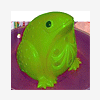-
Welcome to the eG Forums, a service of the eGullet Society for Culinary Arts & Letters. The Society is a 501(c)3 not-for-profit organization dedicated to the advancement of the culinary arts. These advertising-free forums are provided free of charge through donations from Society members. Anyone may read the forums, but to post you must create a free account.
Reboiling water
-
Similar Content
-
- 13 replies
- 5,119 views
-
- 145 replies
- 37,594 views
-
- 28 replies
- 6,817 views
-
- 18 replies
- 5,399 views
-
- 5 replies
- 2,101 views
-
-
Recently Browsing 0 members
- No registered users viewing this page.






Recommended Posts